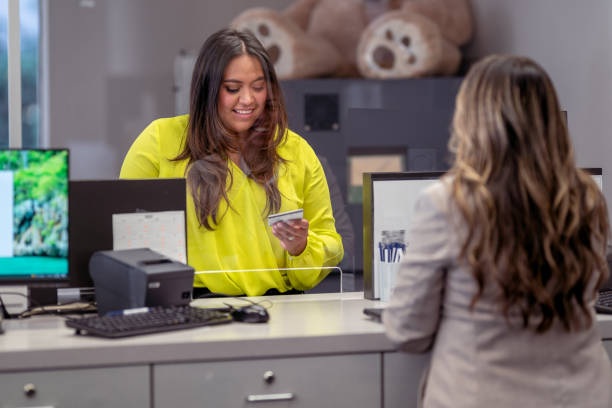Multiple bank accounts can help you separate finances, but require more management.
The ideal number of bank accounts depends on your financial habits and needs. You might be happy with just two accounts – checking and savings – or you may want multiple accounts to separate business and personal expenses, share a bank account with a partner or maintain separate accounts for various financial goals.
"Most people need at least one checking account for managing daily transactions and one savings account for setting aside extra funds," says Leslie H. Tayne, a New York financial attorney at Tayne Law Group P.C. "However, there may be situations when you need other accounts."
Read on to see when it makes sense to have multiple bank accounts and what to consider when you open and maintain bank accounts.
Why Have Multiple Bank Accounts?
Maintaining multiple bank accounts can help you organize your money. For example, some people maintain personal checking and savings accounts, share a joint account and have business checking and savings accounts.
Here are some of the reasons you might want more
than one bank account:
- Maintaining checking for regular expenses and savings for extra money.
- Keeping an emergency fund separate.
- Separating business and personal bank accounts.
- Using a joint checking account for shared expenses with a partner.
- Separating spending, such as an account for bills and another for variable expenses.
- Earning bank bonuses by opening new accounts and maintaining
balances.
Money coach and certified financial planner Ohan Kayikchyan says it can make sense for a household to maintain four accounts: one checking account for monthly recurring bills and another for variable expenses, plus one savings account for emergency funds and a second for other savings goals.
Benefits and Drawbacks of Multiple Bank Accounts
While it can be helpful to use multiple bank accounts, maintaining the accounts can be a drawback. On the plus side, using more than one bank account can help you with budgeting, separating funds and tracking your money flows.
Tayne says designating accounts for different spending categories can help you avoid overspending. For example, if you use separate accounts to pay your bills and for variable expenses, you don't have to worry about bouncing a rent check because you spent too much on groceries.
If you have a lot of cash, Tayne says it's a good idea to spread it across multiple banks so you don't exceed the FDIC limits for insurance.
But when you have multiple bank accounts, you'll have to manage them all. "The more bank accounts you have, the more there is to manage and keep track of," says Tayne. "Consider any minimum balance requirements to avoid fees as well as automatic transfers that could put you in the red if you don't maintain enough of a buffer."
She recommends regularly reviewing bank statements for fraudulent activity.
Additionally, some interest-bearing savings accounts earn a higher rate of interest depending on your balance. It could be advantageous to keep more of your money in one place.
However, bank accounts don't affect your credit score unless you have a charged-off account with a negative balance. Tayne says if you repeatedly overdraft your accounts, it could be reported to ChexSystems, which will make it difficult to open accounts in the future.
Factors to Consider When Opening a Bank Account
When you're ready to open a new bank account,
whether it's your first or fifth, keep these factors in mind:
- Account purpose. How you'll use the account.
- Bank reputation. Reviews and history that indicate whether you should trust the institution.
- Minimum balance requirements. How much you need to keep in the account to avoid fees.
- Interest rates. How much interest your deposits earn, if any.
- Account fees. How much it costs to maintain an account and any requirements you must meet to waive account fees.
- Available services. Services the bank offers, such as
online bill payment or a mobile app.
Tips for Managing Multiple Bank Accounts
Juggling multiple bank accounts can be challenging, but money management tools can make it easier. For example, Tayne suggests using a budgeting app and linking your accounts to get a consolidated view of your finances. You can also sign up for text or email alerts from your bank to get notified about low balances, large transactions and upcoming bill payments.
Still, you should conduct regular reviews of your accounts. "It's wise to check your bank statements on a monthly basis to ensure there are no unauthorized or suspicious transactions on the accounts," says Kayikchyan. "Periodically reviewing your bank statements will also assist in budgeting, helping you keep your expenses in check."











0 Comments